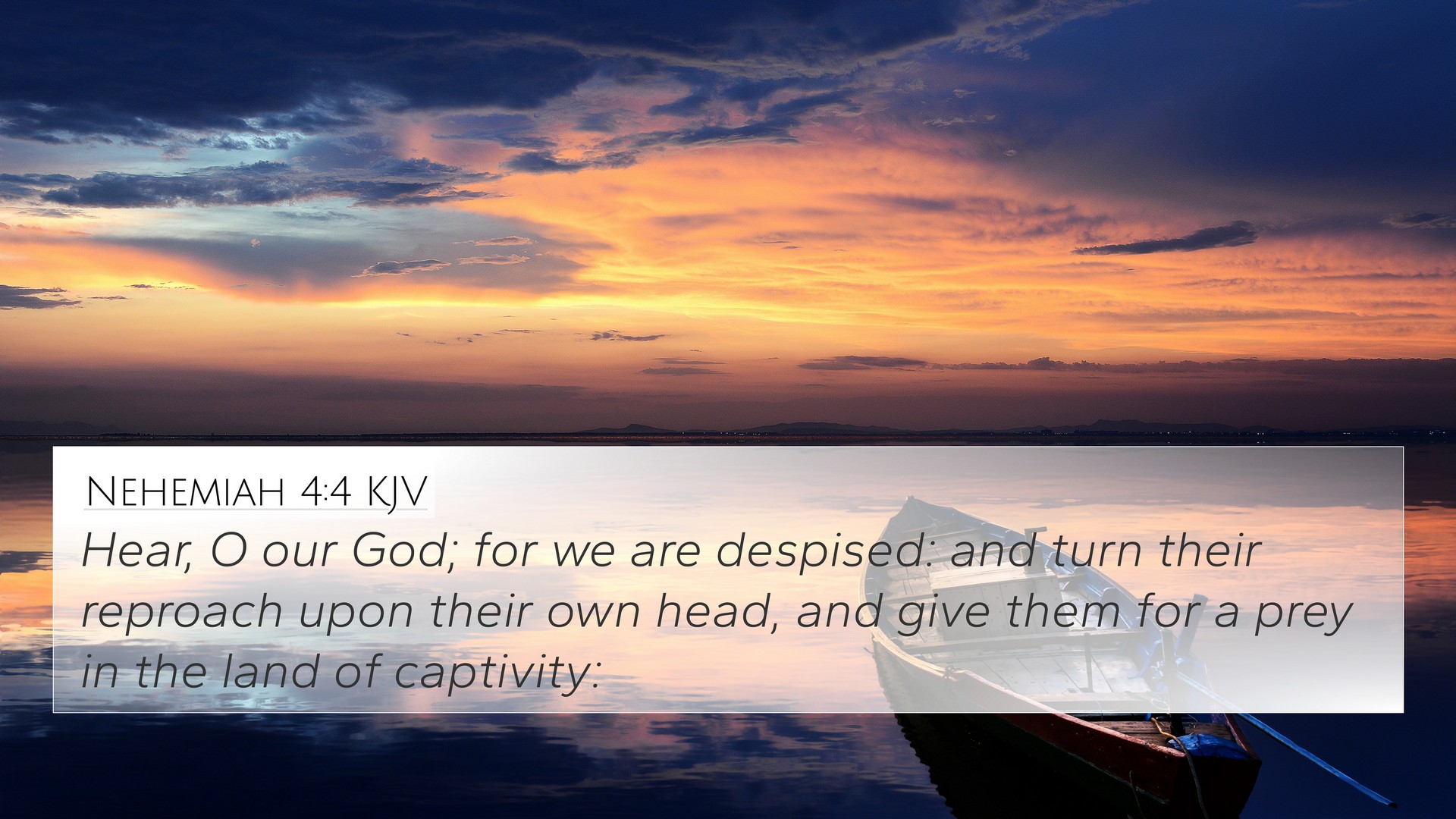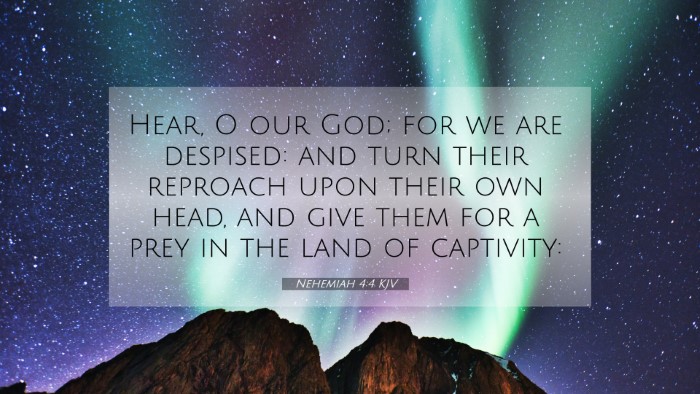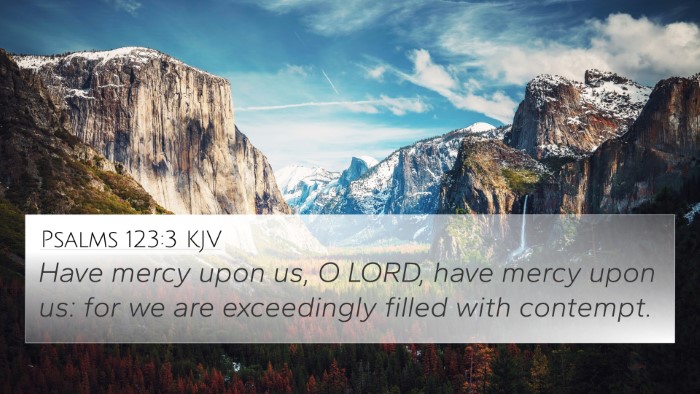Understanding Nehemiah 4:4
Bible Verse: Nehemiah 4:4 - "Hear, O our God; for we are despised: and turn their reproach upon their own head, and give them for a prey in the land of captivity."
Contextual Background
Nehemiah 4:4 is set during a critical period when Nehemiah leads the Israelites in rebuilding the walls of Jerusalem amidst opposition and ridicule from adversaries such as Sanballat and Tobiah. This prayer is a direct response to the insults and threats faced by the people as they engage in God's work.
Commentary Insights
-
Matthew Henry's Commentary:
Matthew Henry emphasizes the significance of prayer in times of distress. He highlights that Nehemiah's response to mockery and scorn is not to retaliate with anger but to seek divine intervention. This demonstrates that in facing persistent challenges, turning to God with haste and earnestness is paramount. Nehemiah's plea reflects his concern for God's honor amidst their suffering.
-
Albert Barnes' Commentary:
Albert Barnes elaborates on the nature of Nehemiah's prayer, suggesting that it is both a lamentation for the despising of God's people and a request for justice. He points to the importance of acknowledging God's sovereignty over their plight. By asking that their reproach be turned upon their enemies, Nehemiah shows a deep reliance on God's governance and righteousness.
-
Adam Clarke's Commentary:
Adam Clarke provides insight into the historical and spiritual implications of the verse. He notes that Nehemiah's urgent call to God illustrates a faithful leader's dependence on divine strength in times of adversity. Clarke also comments on the cultural implications of vengeance, advocating for an understanding of divine justice that aligns with God's character.
Thematic Analysis
Nehemiah 4:4 encapsulates several key themes:
- Prayer in Adversity: The necessity of seeking God in challenging times is reinforced through Nehemiah's prayer.
- Divine Justice: The request for God to turn reproach upon the enemies illustrates faith in God's ultimate authority to judge and avenge.
- Leadership and Responsibility: Nehemiah exemplifies the qualities of a godly leader who intercedes for his people.
Bible Verse Cross-References
To deepen the understanding of Nehemiah 4:4, here are cross-referenced verses that relate thematically or contextually:
- Psalm 44:13-15: This psalm reflects the experience of being scorned and ridiculed, resonating with Nehemiah's plea.
- Isaiah 54:17: God's assurance that no weapon formed against His people shall prosper, aligning with the theme of protection.
- Romans 12:19: Highlights God's vengeance and reminds believers not to repay evil with evil.
- Jeremiah 18:23: A request for God's judgment against those who seek harm against His chosen.
- Matthew 5:10: Blessed are those who are persecuted for righteousness, linking to the sufferings faced in Nehemiah's context.
- 2 Thessalonians 1:6: God is just; He will repay with affliction those who afflict the faithful.
- Proverbs 26:27: Emphasizes the principle of falling into one's own trap, mirroring the request made by Nehemiah.
Cross-Referencing Biblical Texts
Engaging in cross-referencing can provide a broader understanding of biblical narratives and themes. For instance, examining the connections between Nehemiah's trials and the teachings of Jesus on persecution in the Sermon on the Mount deepens our comprehension of the Christian experience in facing adversity. By using tools for Bible cross-referencing, believers can uncover rich thematic parallels across the scriptures.
Conclusion
Nehemiah 4:4 offers profound insights into the nature of faith, resilience, and reliance on divine justice amidst trials. It underscores the importance of prayer and the sovereign control of God over the circumstances that His people face. Through understanding this verse in the light of related scriptures, believers are encouraged to remain steadfast in their faith during times of opposition.







